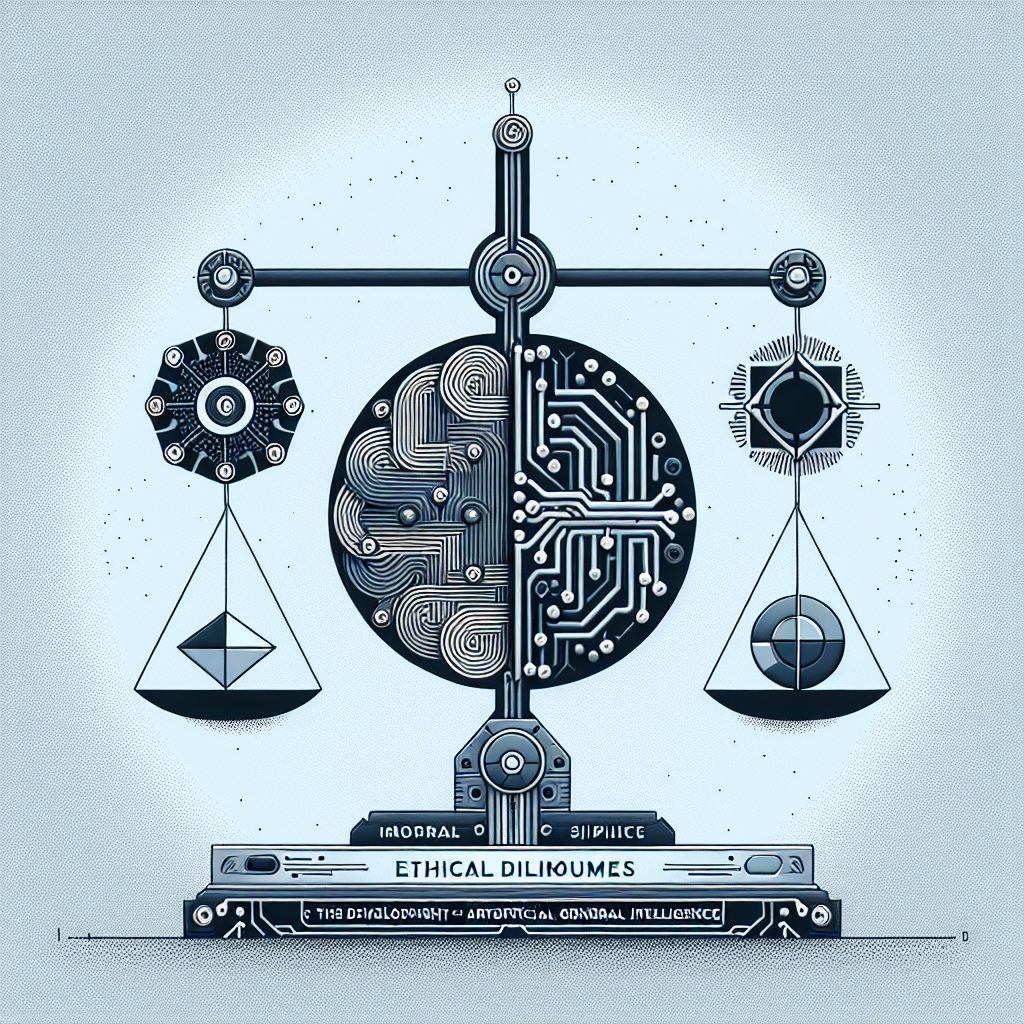In recent years, there has been a growing interest in the development of Artificial General Intelligence (AGI) – a form of artificial intelligence that is capable of performing any intellectual task that a human can do. While the potential benefits of AGI are vast, there are also significant ethical dilemmas that must be considered as we navigate this new frontier.
One of the main ethical dilemmas surrounding AGI is the issue of responsibility. As AGI becomes more advanced and autonomous, who will be held accountable for its actions? Will it be the developers who created the AI, the companies that deploy it, or the AI itself? This question becomes even more complex when we consider the potential for AGI to make decisions that have far-reaching consequences.
Another ethical dilemma of AGI is the potential for bias and discrimination. AI systems are only as good as the data they are trained on, and if that data contains biases, the AI will inevitably replicate those biases. This has already been seen in various AI systems, such as facial recognition technology that has been shown to be less accurate for people of color. As AGI becomes more advanced, the potential for bias and discrimination only increases, raising important questions about how to ensure fairness and equity in AI systems.
Additionally, there is the ethical dilemma of job displacement. As AGI becomes more capable of performing human tasks, there is the potential for widespread job loss across various industries. This raises questions about how to ensure that the benefits of AGI are shared equitably and how to support those who may be displaced by automation.
In navigating these ethical dilemmas, it is important to strike a balance between progress and responsibility. While the potential benefits of AGI are vast, we must also consider the potential risks and ensure that AI systems are developed and deployed in a way that prioritizes ethical considerations.
One way to address these ethical dilemmas is through the development of ethical guidelines and regulations for AI systems. Organizations such as the Partnership on AI and the IEEE have published guidelines for the ethical development and deployment of AI, emphasizing principles such as transparency, accountability, and fairness. By adhering to these guidelines, developers and companies can help ensure that AI systems are developed in a responsible and ethical manner.
Another way to address ethical dilemmas in AGI is through interdisciplinary collaboration. AI developers should work closely with ethicists, policymakers, and other stakeholders to ensure that ethical considerations are integrated into the design and deployment of AI systems. By bringing together diverse perspectives, we can better understand the potential ethical implications of AGI and work towards solutions that prioritize the well-being of society as a whole.
In conclusion, the development of AGI presents significant ethical dilemmas that must be carefully considered and addressed. By balancing progress with responsibility, and by adhering to ethical guidelines and collaborating with diverse stakeholders, we can help ensure that AI systems are developed and deployed in a way that benefits society as a whole. As we continue to navigate this new frontier, it is essential that we prioritize ethical considerations and work towards solutions that promote fairness, equity, and accountability in the development of AGI.
FAQs:
Q: What is the difference between AGI and narrow AI?
A: AGI refers to artificial intelligence that is capable of performing any intellectual task that a human can do, while narrow AI is designed to perform specific tasks or functions. AGI is more flexible and adaptable than narrow AI, but also presents greater ethical dilemmas.
Q: How can we ensure that AI systems are developed in an ethical manner?
A: By adhering to ethical guidelines and principles, such as transparency, accountability, and fairness, developers and companies can help ensure that AI systems are developed in a responsible and ethical manner. Collaboration with ethicists, policymakers, and other stakeholders can also help to address ethical considerations in the development of AI systems.
Q: What are some potential risks of AGI?
A: Some potential risks of AGI include bias and discrimination, job displacement, and the potential for AI systems to make decisions with far-reaching consequences. It is important to carefully consider these risks and work towards solutions that prioritize ethical considerations in the development of AGI.

